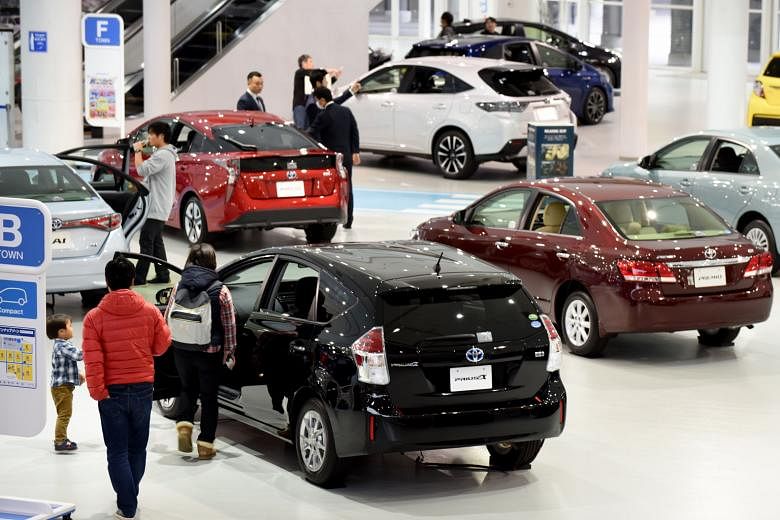TOKYO/NAGOYA • Japan's economic growth handily beat expectations in the July-September period, expanding for a third straight quarter as exports recovered, but weak domestic activity cast doubt on hopes for a sustainable recovery.
Government data issued yesterday underscored a potentially fragile export-reliant economic recovery just as Mr Donald Trump's shock victory in the United States presidential election added to uncertainty over the global outlook.
The world's No. 3 economy expanded by an annualised 2.2 per cent in the third quarter, faster than the 0.9 per cent rise markets had expected, following a 0.7 per cent increase in the April-June period, Cabinet Office data showed.
Bank of Japan governor Haruhiko Kuroda maintained his optimistic view of the economy, saying it was on track for a moderate expansion as exports and output rebounded thanks to an expected improvement in the global economy.
But he noted private consumption was "somewhat lacking momentum" and making some firms hesitant to raise the prices of their goods and services - potentially delaying achievement of the central bank's 2 per cent inflation target.
"Risks to both economic activity and prices are skewed to the downside," Mr Kuroda told business leaders in Nagoya, stressing his resolve to ease again if the economy loses the momentum to hit his price goal.
Yesterday's data highlighted the uneven nature of Japan's recovery.
External demand - or exports minus imports - added 0.5 percentage point to gross domestic product (GDP). It was the biggest contribution since April-June 2014, but was due in part to falling imports caused by yen gains and oil price falls.
Exports grew 2 per cent, the fastest gain in a year, but the increase was driven by potentially one-off factors such as a boost in shipments of smartphone parts.
Private consumption, which accounts for roughly 60 per cent of GDP, rose just 0.1 per cent, as bad weather kept consumers from shopping. That added to concerns the benefits of Prime Minister Shinzo Abe's "Abenomics" stimulus drive are yet to spread to households, as seen in tepid annual wage rises.
Capital expenditure, a key component of GDP, was flat following a 0.1 per cent decline in the second quarter, likely reflecting worries about the global outlook.
Mr Kuroda said next year's wage negotiations between companies and labour unions were crucial to whether Japan would hit its 2 per cent inflation goal, calling on firms in Nagoya - home to auto giant Toyota Motor - to help boost wages.
He said the central bank was watching yen moves carefully as they have a "big impact" on the economy and prices.
REUTERS

